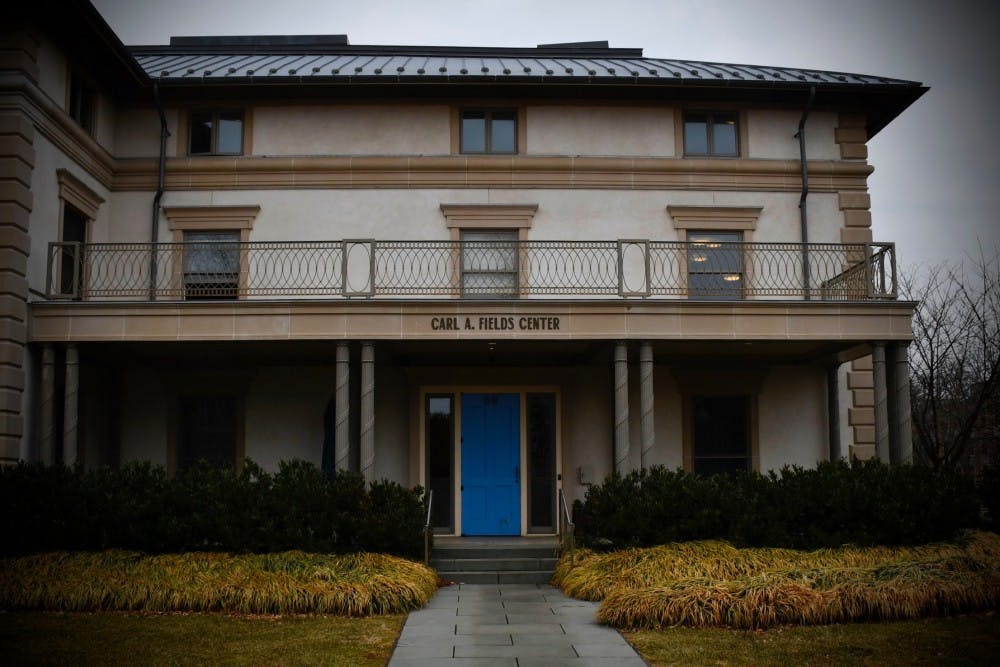When she first came to the University as a freshman, the Black Student Union (BSU) was not very well-known, said former BSU president Tylor-Maria Johnson ’19.
Now, she believes, the organization holds greater weight and “makes students feel welcomed, supported, and encouraged” on campus.
As an umbrella organization for black student groups, BSU aspires “to foster and maintain a community that supports the educational, professional, and social experiences of Princeton’s Black students,” according to the website of the Office of the Dean of Undergraduate Students. In light of that mission, current leaders feel that the BSU’s future holds much potential.
One of BSU’s major annual events is Black Together, a dinner in which members welcome first-years to the University and connect them with black students, faculty, and alumni. Current BSU president Kalyn Nix ’21 said that more than 200 people attended this year’s event, which was held in the Carl A. Fields Center (CAF) multipurpose room.
Recently, BSU has begun to offer events aimed primarily toward upperclass students. This past December, for the first time, the group hosted the “ICED OUT Winter Gala,” a semi-formal event that took place in Whig Hall.
Nix stated that the gala served in part as an alternative to formals for upperclass students who may not be in eating clubs, in some cases due to the financial burden that club membership imposes.
Johnson recalls the gala as the highlight of her tenure as BSU president. Since her sophomore year, she had held the goal of hosting an end-of-semester celebration for black students to recognize “the amazing things people have been doing in the community.”
“Though this event took a lot of effort and people to plan, it was so rewarding to see it all come together after literally dreaming about it for a while,” Johnson wrote in a statement to the ‘Prince.’

The organization succeeds through both hosting large events and fostering personal connections, with the word “community” emerging as a central theme when hearing from one student after another about their experiences with the BSU.
When BSU outreach director Frelicia Tucker ’22 was going through a stressful time earlier this week due to approaching midterms, a BSU-affiliated upperclass student whom she barely knew saw her at breakfast and asked if she was okay.
“When people stop in and check on you — that’s what community is all about,” Tucker said, noting the “big-hearted people” she’s met through the group.
Silma Berrada ’22 described finding her niche at a BSU Popeyes study break.

“A lot of times in class, I’m the only black person,” said Berrada, who now serves as BSU’s director of marketing. “Seeing all these people coming together … it was reaffirming of my self-worth and acceptance on this campus.”
According to Berrada and Kalyn Nix, the community is particularly meaningful, as both of them grew up in predominantly white neighborhoods and felt a lack of black community throughout high school.
Berrada is a staff writer for The Daily Princetonian.
Despite these successes, board members feel there are ways in which BSU can and should grow. For one, Nix pointed out, there is no “black space” on campus, as there are black houses at many peer institutions, including Yale University.
The current board has several initiatives on the docket. The main obstacle is funding them.
Although Nix commended the Office of the Dean of Undergraduate Students and CAF for their financial support, she said it isn’t enough to fund some of the programs she would like to see implemented. BSU is now in the process of speaking with alumni about the possibility of moving away from a University-funding-dependent model and becoming an endowed group.
With increased funds, Nix would like to give back to black communities near Princeton, as well as bring in speakers and alumni independent of the African American Studies department.
“If students could hear from successful black alums, it would empower them academically,” Berrada said.
In the same vein, Nix would like to use her tenure to work on building a BSU alumni network for members.
The board is also considering a new pre-Orientation program. Nix said that incoming black students would benefit from a more extensive acclimation event, timed earlier in September than the annual dinner, to help them form connections with other black students before class starts.
Tucker felt particularly passionate about the pre-retreat project, since it would mirror a black “meet-and-greet” she enjoyed as a first-year at Rice University before transferring to the University this past fall.
“Having reassurance early on that you belong, even before orientation, was nice,” she said. “At the moment, it didn’t mean much, but later it was very important.”








